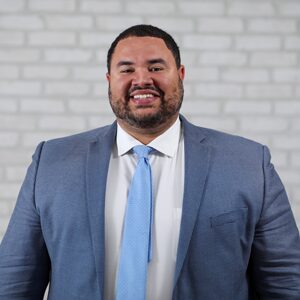The US education system was rocked by COVID-19, forcing students to shift from their familiar school walls to virtual Zoom classrooms. Not only have the children been affected but teachers have also been tasked with reimagining lesson plans for remote learning while grappling with the stresses of meeting tough educational benchmarks set by administrators. All the while, researchers have found that the mental health of remote students has steadily declined and could lead them to miss out on key social development experiences while being physically separated from their peers.
Largely, remote learning still leaves a lot to be desired.
Educators know this, and as they continue to plan for uncertain futures, they’re also striving to find a happy medium to keep children safe from the pandemic while effectively educating them.
Adam Mangana says he’s found that solution. What is it? Virtual reality.
Mangana is the current Executive Director of Optima Domi and co-founder of Optima Classical Academy (OCA), the world’s first ever virtual reality charter school. Ironically, he says the idea for the school originated from his love of books, of all places.
“I’ve always loved great books,” Mangana shared with Essence. “And as you may know, if a Black child has 50 novels in their home, they’re 95% likely to go to college. How do you make that type of curriculum accessible to our kids that are right now being sent home and lost?”
He says research he did while pursuing his master’s crystallized the idea for the VR-based school.
“While at Vanderbilt University, my Capstone project was in virtual reality education,” he explained. “I’ve always thought that great books were the best empathy machine in the world but through my research, I learned that we have this other incredible empathy machine emerging with VR. I was able to figure out that if we married the best content in the world with the best delivery, we could solve some of the big challenges in online education, especially in a context where even after the pandemic, we’re likely to face teacher shortages and online education isn’t going anywhere.”
The tuition-free school will be based in Florida and has plans to initially enroll up to 1,300 students, grades 3-8, for its inaugural classes in August 2022. Mangana says it will merge a virtual reality classroom with classical learning pillars, personalized to their needs. The students will receive a $300 VR headset, get to create their own avatar, and pick where their “classrooms” will be located. As fantastic as all of this sounds though, it’s not lost on Mangana that the students will need to still meet important social markers remote learning doesn’t traditionally provide.
Mangana ensured that each classroom is led by real teachers, that are superimposed into the virtual classroom and can respond to needs in real-time.
“We’ve stumbled upon something important with VR learning, which is to make remote education more human–more social,” Mangana said. “VR solves the loneliness problem in online education.”
“https://www.essence.com/news/money-career/black-educator-launches-first-virtual-reality-charter-school/”

